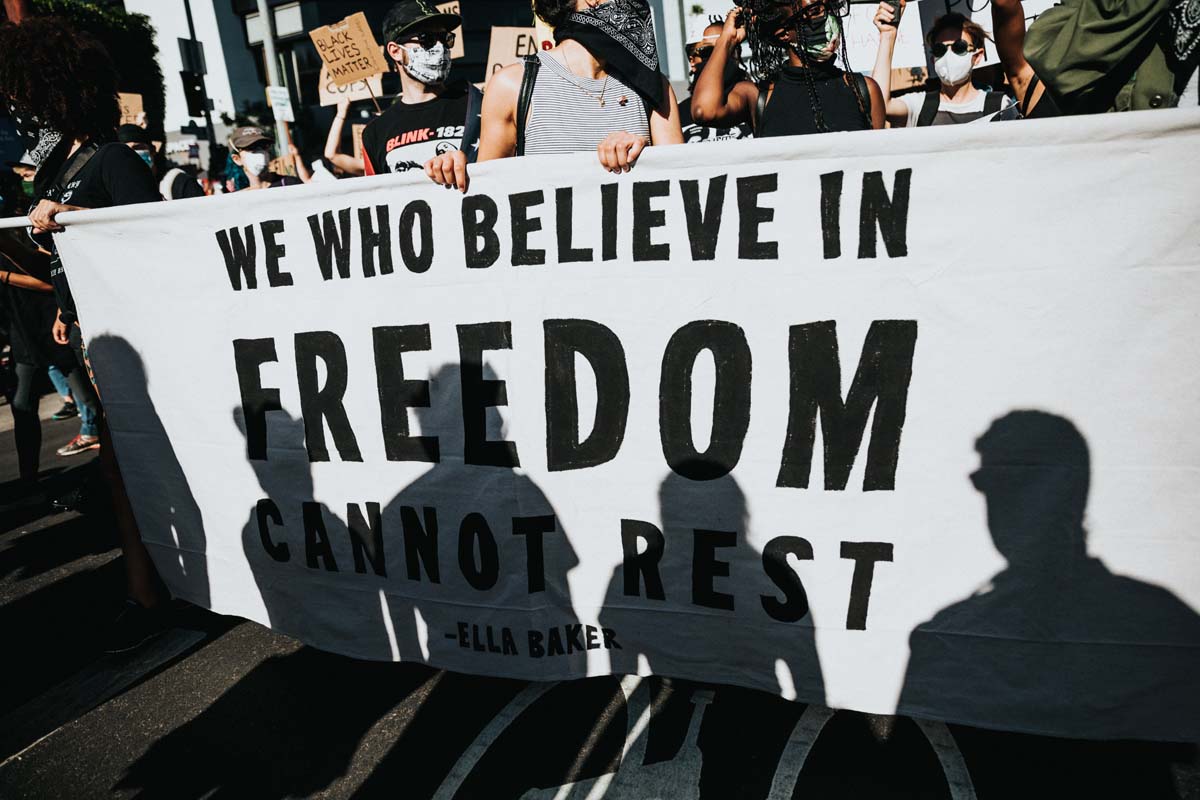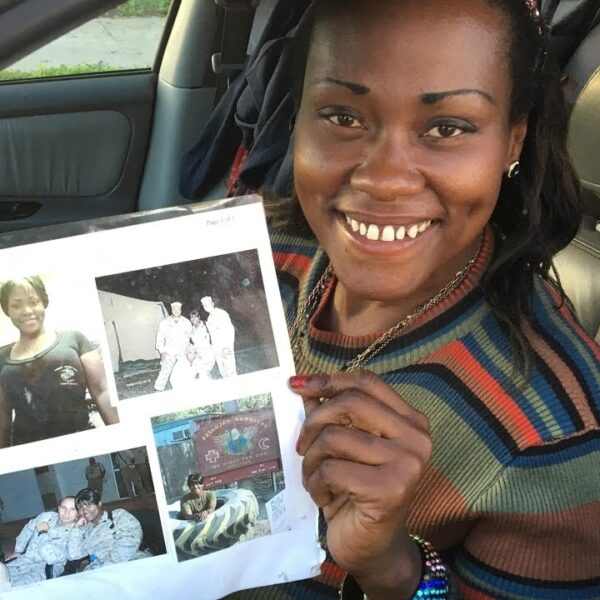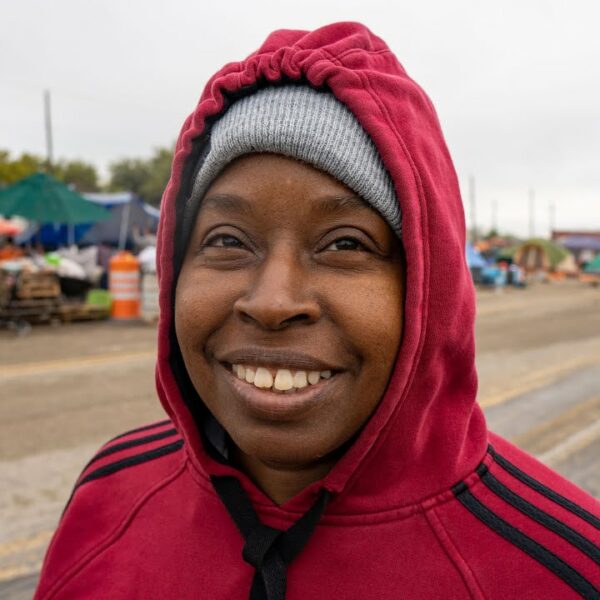There is no doubt that the Black Lives Matter movement is relevant to our fight against homelessness. In fact, housing is racial justice. More than ever, this statement must be heard.
Poor black and brown people are at immediate risk of homelessness. This fact only exaggerates their already inflated risk of contracting the coronavirus. In this same moment, our black and brown friends are facing police brutality. They are being cast aside, forgotten, or killed in our communities as a result of many years of systematic racism plaguing our political, social, and economic systems.
With this said, the Black Lives Matter movement should be everyone’s fight. Racism exists and it is everywhere.
Black lives matter. Black lives matter. We must keep saying it.
Where there is economic injustice, extreme poverty, and homelessness, there are significantly more black and brown people affected.
In so many cities, not only here at home, but all over the globe, we demand racial justice. Although the murder of George Floyd and the stark reality of police brutality ignited our fight against racism, our protests also recognize that racial injustice exists in every corner of our society. Yes, we need racial justice in housing, but also in health care, in employment, in education, and everywhere else.
Right now, we face, not only a deadly and unforgiving global pandemic that is already disproportionately affecting black and brown people, but also a recession comparable to the great depression. The reality is if we don’t act immediately, millions of black and brown people will be evicted from their homes in the coming months. These realities will do nothing more than ensure the inevitable homelessness of so many black and brown people.
America has a history of racist housing policies that still affect black and brown Americans today.
In “Housing Justice is Racial Justice” by Diane Yentel, CEO and President of the National Low Income Housing Coalition, we learn that:
“America’s history of racist housing and transportation policies – redlining, blockbusting, restrictive covenants, restrictive zoning, highway systems built to isolate black communities – resulted in over-policing and disinvestment in black and brown communities. These decades of structural racism created tremendous racial disparities in housing and homelessness. African Americans represent thirteen percent of the general population but are forty percent of people experiencing homelessness and more than fifty percent of homeless families with children. Black families are twenty-six percent of all extremely low-income renters. Black and Native Americans are bearing the brunt of COVID-19 infections and fatalities, and Latinos and Black people are bearing the brunt of historic job losses.”
Even before COVID-19 devastated all of our lives, housing disparities were a significant issue for black and brown Americans.
In the report “Time for Justice: Tackling race inequalities in health and housing”, authors Dayna Bowen Matthew, Edward Rodrigue, and Richard Reeves explore housing disparities further:
“Substandard housing conditions such as pest infestation, lead paint, faulty plumbing, and overcrowding disproportionately affect black families and lead to health problems such as asthma, lead poisoning, heart disease, and neurological disorders. Blacks are 1.7 times more likely than the rest of the population to occupy homes with severe physical problems. Concentrated housing inequality also disproportionately exposes black communities to environmental pollutants and isolates black populations from essential health resources such as improved recreational spaces; quality pharmacies, clinics, and hospitals; and healthy food options.”
The housing crisis and its disproportionate harm to low-income people of color has only deepened over the last several decades. Now, black and brown renters are at an immediate risk of losing their homes due to COVID-19. Rent is due again, and millions of people don’t have the money to pay. Eviction moratoriums are expiring and back rent is due. Unless something happens very soon, there will be millions of evictions across the country. Like always, people of color will be most harmed by this.
If you didn’t already think so, I hope you now realize the importance of these protests.
Myself, as well as millions of Americans have had enough. Our system doesn’t work. It is time to dismantle it. I hope you will join me in this fight because we need you more now than ever.
We need your support.
We need to unite and come together against fascism, racism, and the racial injustices our black and brown friends face each day.
The truth of the matter is: their lives depend on it. Their lives are in all of our hands right now.
Now is the time to exercise your privileges. Now is the time to speak up, to get angry, to demand justice, to remain steadfast in our fight. It is now time to remain vigilant and strong for our black and brown friends. We must keep the protests going. We must continue to have these conversations.
And remember, there are many front lines to each battle. Whether you are on the street, in the thick of it, or at home, in front of your keyboard, or at the dinner table with family or friends, you can fight for black lives. Your voice and your actions matter. Your ear in listening to black voices matters even more.
Now is the time to be an ally. Now is the time to support, to fight.













